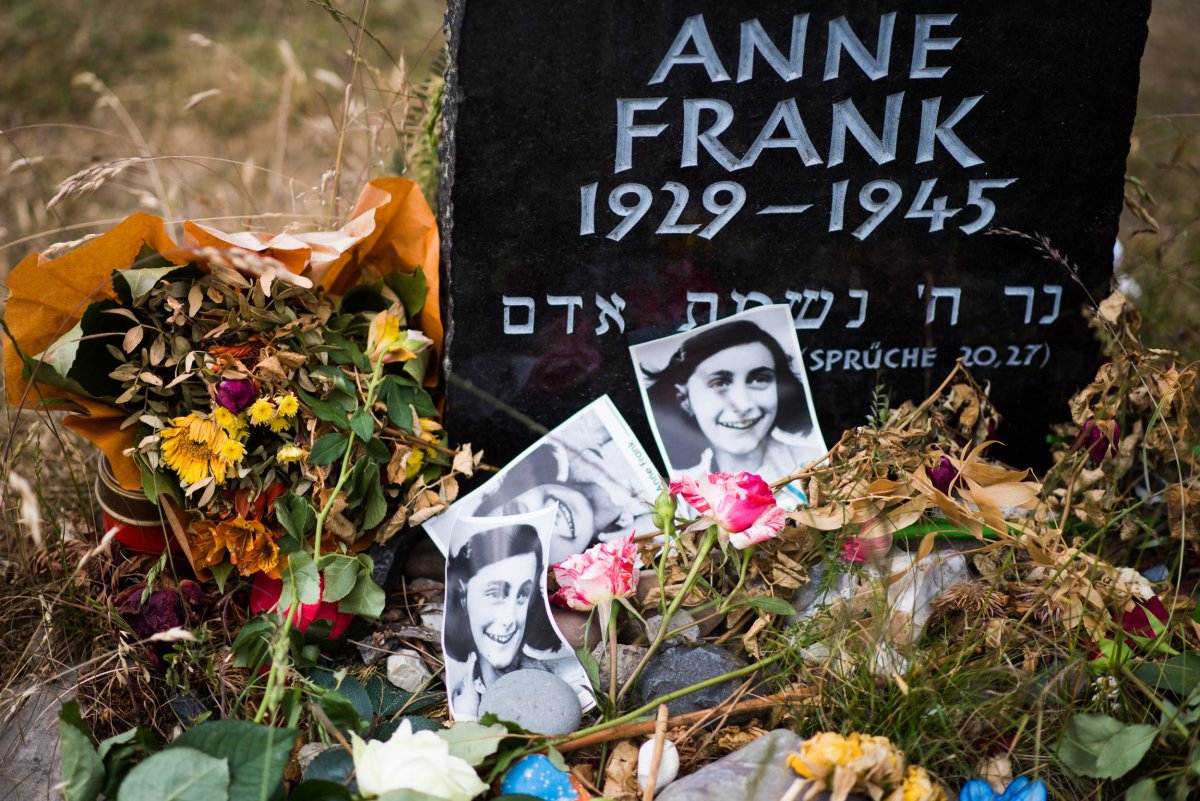Investigators believe they have uncovered the seven-decade-old mystery of who informed the Nazis where Anne Frank and her family were hiding in the Netherlands.
The teenager, whose diary has become one of the most read books of all time, was found by police in Nazi-occupied Amsterdam inside an annex hidden behind a bookcase on August 9, 1944.
The 15-year-old, who hid in the cramped safehouse for two years with her family, was then sent to the Bergen-Belsen Nazi concentration, where she died.
For years, it's been believed that Frank's family was betrayed and that the Nazis received a tip off about where they were hiding. Despite a number of investigations, there has been no definite answer as to who may have led the Nazis to the teenager.
As reported by CBS' 60 Minutes, a team that includes Vince Pankoke, who spent three decades as an FBI special agent targeting Colombian drug cartels, has named the person responsible as Arnold van den Bergh, who died in 1950.
According to the investigators, Van den Bergh, a prominent Jewish businessman whose wife and children also lived in Amsterdam, allegedly worked as an informer to the Nazis in order to save his own family from persecution.
Speaking to 60 Minutes, Pankoke said they were able to name Van den Bergh after treating the mystery about who gave the diarist and her family up to the Nazis as if it were a criminal cold case.
"It is a circumstantial case, as many cases are. In today's crime solving, they want positive DNA evidence or video surveillance tape," Pankoke said. "We can't give you any of that. But in a historical case this old, with all the evidence that we obtained, I think it's pretty convincing."
Six-Year Investigation
Pankoke said that the investigators, who have been working on the case for the past six years, did what they would do with any cold case and opened up the previous investigations, including those headed by the Dutch police in 1948 and 1963.
However, the previous investigations were found to be "incomplete" by Pankoke's team.
"They were scattered about in probably a dozen different archives. Reports were missing. Witnesses had passed on. Memories had failed," he told 60 Minutes.
The team then began using the Dutch archives, which were used by the Nazis to hunt down Jewish people, to see if they could make any possible connection to those who were close to the hiding pace and find a reason for them to betray the Franks.
They also fed letters, maps, photos and entire books into an artificial intelligence database developed specifically for the project to identify possible links between people in Amsterdam at that time.
This led them to Van den Bergh and the revelation he served on the Jewish council, a body the Nazis set up to carry out their policies within the Jewish community on their behalf so they they might be spared being sent to concentration camps.
Handing Over Lists of Addresses
Pankoke noted that the national archive records indicated that somebody from the Jewish Council, of which Van Den Bergh was a member, was turning over lists of addresses where Jews were in hiding to the Nazis.
"There's no evidence to indicate that he knew who was hiding at any of these addresses. They were just addresses that were provided that—where Jews were known to have been in hiding," Pankoke said.
The investigators found that neither Van den Bergh or his family were sent to any death camps after the Nazis began to disband the Jewish councils, something Pankoke says could only have been possible if Van den Bergh "had some kind of leverage."
Van den Bergh's name was also mentioned in the 1963 probe, although it didn't appear to be fully investigated.
"We read just one small paragraph that mentioned that during the interview of [Anne Frank's father] Otto Frank, he told them that shortly after liberation, he received an anonymous note identifying his betrayer of the address where they were staying, the annex, as Arnold van den Bergh."
In 2018, Pankoke and the team located the son of one of the former investigators, who surprisingly was able to locate Otto Frank's copy of the note naming Van Den Bergh.
Not a 'Smoking Gun'
Pankoke told 60 Minutes that the evidence they have uncovered regarding Van den Bergh is not exactly a "smoking gun," but more like a "warm gun with the evidence of the bullet sitting nearby."
Thijs Bayens, a Dutch documentary filmmaker who also worked on the investigation, said he "found it very painful" to discover the person who may have given up the Franks was another Jew in order to save his own family.
When asked why, Bayens told 60 Minutes: "Because I feel the pain of all these people being put in a situation which is very hard for us to understand."
The Anne Frank Fonds foundation, founded by Otto Frank in 1963, and the Anne Frank House in Amsterdam have been contacted for comment.

Uncommon Knowledge
Newsweek is committed to challenging conventional wisdom and finding connections in the search for common ground.
Newsweek is committed to challenging conventional wisdom and finding connections in the search for common ground.
About the writer
Ewan Palmer is a Newsweek News Reporter based in London, U.K. His focus is reporting on US politics, domestic policy ... Read more
To read how Newsweek uses AI as a newsroom tool, Click here.








